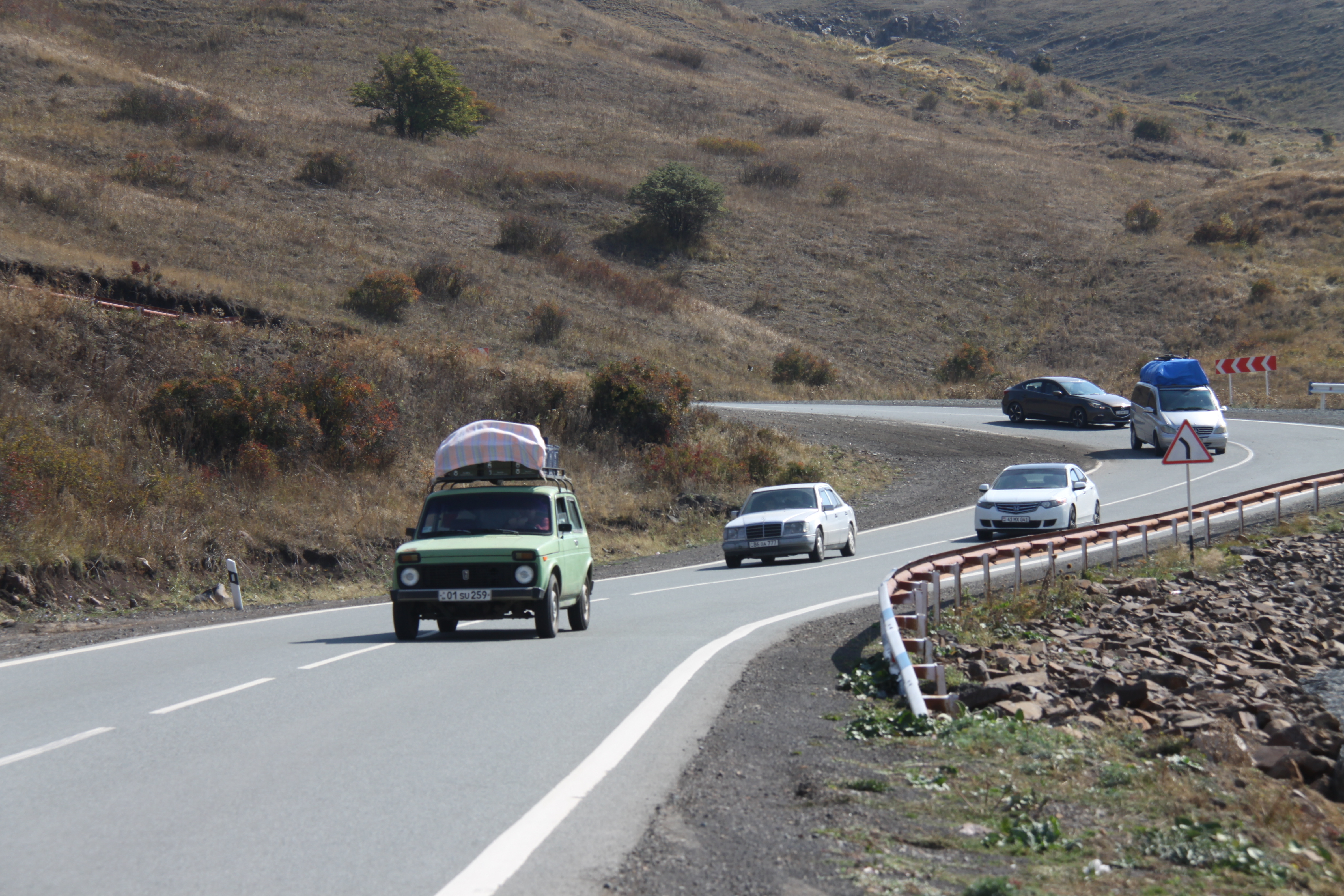Armenia
Displacement of Ethnic Armenians from Nagorno-Karabakh and New Wave of Tensions between Armenia and Russia

The Exodus of the Nagorno-Karabakh Population “Nearly Complete”
As of October 3, more than 100,000 local residents of Nagorno-Karabakh had fled to Armenia, refusing to live under Azerbaijani rule after Azerbaijan’s recent large-scale offensive on Nagorno-Karabakh on September 19-20 (it is already referred to as the “third Nagorno-Karabakh war).
Few Armenians seem willing to stay in Nagorno-Karabakh now. The absolute majority of the ethnic Armenian population fled from their homes because of the absence of elementary security rights by Azerbaijan, especially after the forcible disbandment of the local power structures. People are terrified, desperate, and shocked because of the recent casualties, the results of a nine-month blockade imposed by Azerbaijan in December 2022 (such as starvation, no access to infrastructures, and proper medical treatment), as well as the uncertain future for their children.
A small team of Armenians on spot, who had been looking for elderly people and helpless civilians, possibly stuck in their homes and unable to join the exodus on their own, as well as those who died or went missing as a result of the latest war and the powerful explosion at a local fuel depot, also arrived in Armenia in the late evening of October 3.
Before the exodus, Nagorno-Karabakh officially had a population of about 120,000. The figure, however, included thousands of people who were unable to return from Armenia to Nagorno-Karabakh after Baku blocked the Lachin corridor in December 2022– the sole road, connecting the region with Armenia. Accordingly, one should conclude that Nagorno-Karabakh is almost completely empty, with some hundred people remaining, who might also leave in the upcoming days.
In addition, the self-proclaimed Nagorno-Karabakh Republic (NKR) will cease to exist by its own decision from January 2024 on. On September 28, the president of the unrecognized NKR signed a respective decree, according to which the entity would be terminated, as well as all state institutions would be dissolved.
Armenia’s Prime Minister Nikol Pashinyan’s stated that “the exodus of Armenians from Nagorno-Karabakh is a result of the policy of ethnic cleansing implemented by Azerbaijan. This is a direct act of ethnic cleansing and deprivation of homeland, something we have been warning the international community about for a long time.” Pashinyan considered it essential for international actors to issue statements condemning what is happening in Nagorno-Karabakh.
Earlier, Azerbaijan’s officials stated they intended to arrest and prosecute about 300 current or former political and military leaders of Nagorno-Karabakh. Some of them were arrested in recent days while trying to enter Armenia through the Lachin corridor.
Delayed UN Mission
UN mission, led by the UN resident coordinator in Azerbaijan, traveled to Nagorno-Karabakh first time in some 30 years, reportedly “to assess the humanitarian needs of the people” there, after its practically entire ethnic Armenian population fled to Armenia. In a statement on the one-day trip, it said “as few as 50 to 1,000 ethnic Armenians” are reported to be left in Nagorno-Karabakh” after the exodus of recent days.
There is a certain level of anger among the forcibly displaced ethnic Armenians about both the timing and nature of this UN mission. Specifically, they say that the mission came far too late and that they’d been lacking food, fuel, and basic supplies for several months, so their humanitarian needs were to be urgently addressed months before the displacement.
Ambassador-at-Large of Armenia Edmon Marukyan has criticized the UN mission in Nagorno-Karabakh for legitimizing all crimes committed by Azerbaijan, such as ethnic cleansing and destruction of civilian infrastructures. He called on the UN to investigate the activities of the mission. By contrast, the mission was praised by Baku.
Rome Statute Ratified by the Armenian Parliament
Meanwhile, ignoring stern warnings from Russia, Armenia’s Parliament ratified the founding treaty of the International Criminal Court on October 3. The ratification was approved by the Parliament by 60 to 22 votes.
The main official rationale for Armenia for the ratification is to bring Azerbaijan to justice for its “war crimes” and to prevent more Azerbaijani attacks on Armenia. Upon notice of ratification by the UN Secretary-General, Armenia will become a full member of the International Criminal Court and will be able to file lawsuits against individuals who committed war crimes, crimes against humanity, and genocide on its territory.
Moscow was quick to react to the vote, describing it as an “unfriendly step” directed at Putin. Earlier the Kremlin qualified the possible ratification of the document as an “extremely hostile” move on the part of Yerevan.
Independent legal experts believe that the ratification will commit the Armenian authorities to arrest Putin and extradite him to The Hague tribunal if he visits Armenia because the Court issued an arrest warrant for Russian President Vladimir Putin in March.
Pashinyan reaffirmed the ratification plans on September 24 as he blamed Moscow for Azerbaijan’s latest military offensive in Nagorno-Karabakh and accused it of seeking to turn Armenia into a Russian province. He claimed that signing up to the Rome Statute would help to safeguard Armenia’s independence.
Armenia was among 120 countries that signed the Rome Statute in 1998. However, its parliament did not rush to ratify the document. In 2004, the Armenian Constitutional Court ruled that the treaty violated several provisions of the Armenian constitution that guarantee national sovereignty in judicial matters.
Pashinyan’s government decided last December to call on the court to reexamine the Rome Statute and determine its conformity with the constitution that has been twice amended since 2004. The court ruled in March that the Rome Statute conforms to the amended constitution.
